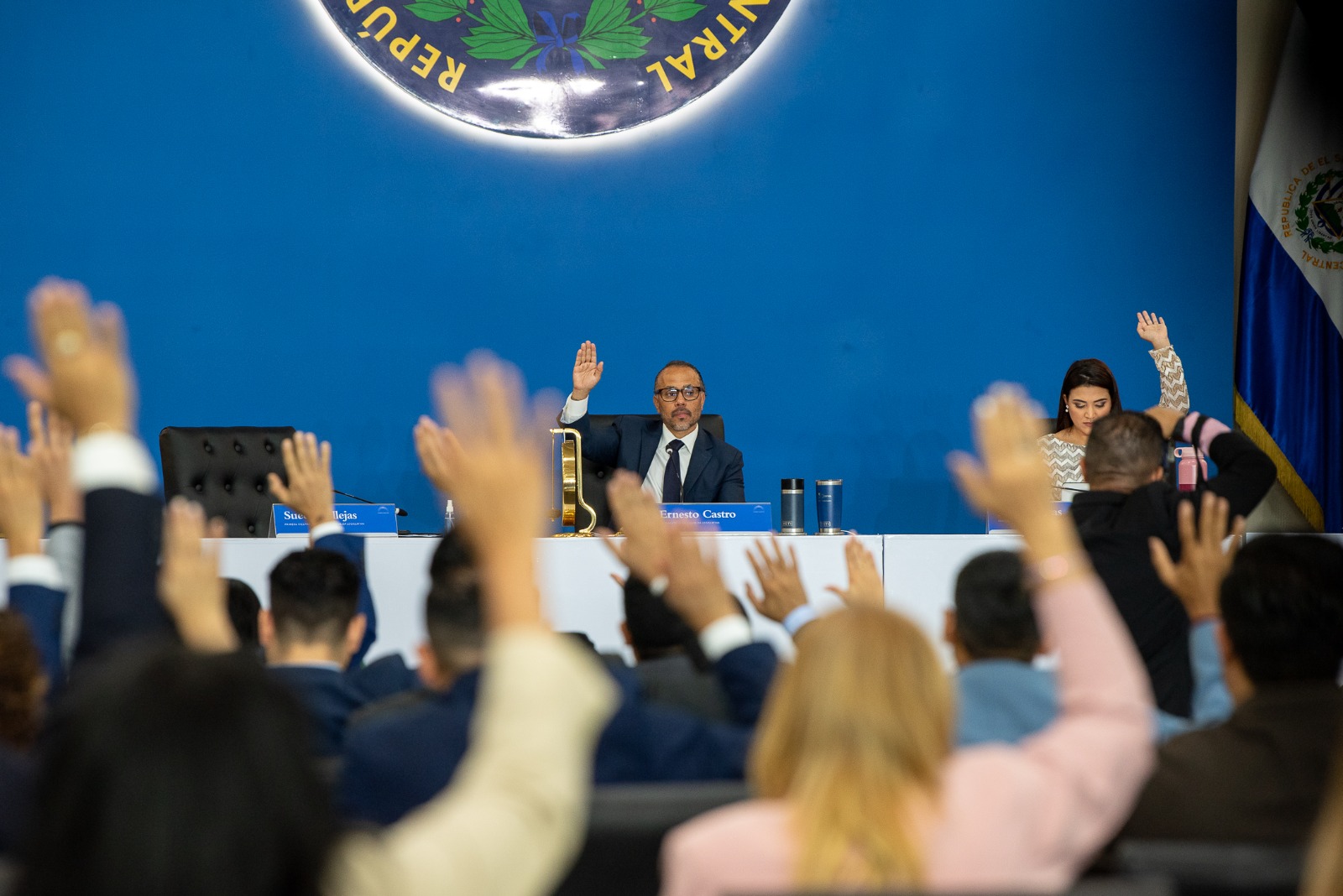The Constitution of the Republic has ceased to be the primary norm governing the nation’s affairs and providing legal stability to the country. This is how the director of the Master’s program in Criminology and Prevention Policies at the UCA (Central American University), Augusto López, puts it when analyzing the reform to Article 248 of the Constitution, passed by Nuevas Ideas and its allies on January 29.
“At any moment, there could be ‘surprises’ because the ruling party can do whatever it wants; it has no limits,” said the academic, who is currently studying a previous attempt to modify the same article in 1991, during the peace negotiations.
He explains that at that time, the initiative did not succeed due to strong opposition from the business, academic, and guild sectors, who argued that the measure would grant constituent powers to an Assembly (Legislative Assembly) not legitimized for that purpose.
In spite of the war and political violence, López says, civil society at that time actively spoke out against the reform. The researcher notes that there is currently fear and a climate of despair, which is why there were no expressions of opposition to the amendment.
“We have a power structure organized throughout the State, violent, and seemingly more effective at intimidation than it was in 1991,” he remarks.
The ratification of the constitutional reform, among other things, heightens the risk of human rights abuses, specialists say. For López, the amendment dismantled the procedures that ensure that legal stability, and now any change can be made in a single day.
He believes that this could lead some businesspeople to choose not to invest in the country, since they could be expropriated overnight under a veneer of legality. “It is a great threat to developing life, to exercising rights and freedoms,” he underscores.
The researcher recalls that Nuevas Ideas has the balance of power in the Assembly, and under the current circumstances, it appears an opportunity has opened for them. “They are not thinking about leaving power one day; rather, they are preparing not to do so,” he says, analyzing the direction of these constitutional changes.
Given this scenario, the academic urges taking a look at history to learn from the past. He points out that during the dictatorship of Maximiliano Hernández Martínez, there were attorneys who defended citizens’ rights, even under adverse conditions.
Analysts say that, in the current context, the rule of law has died in the country. López believes there is some truth to that, but says that those who practice law are still alive and have the ability to make a difference.
Diario Co Latino: https://www.diariocolatino.com/oficialismo-no-salir-poder-reforma-248/
El oficialismo se prepara para no salir del poder, tras reforma al artículo 248
La Constitución de la República ya dejó de ser la norma primaria que rige los asuntos de la nación y que aporta estabilidad jurídica al país. Así lo señala el director de la Maestría en Criminología y Políticas de Prevención de la UCA, Augusto López, al analizar la reforma al artículo 248 de la Carta Magna, aprobada por Nuevas Ideas y aliados el 29 de enero pasado.
En cualquier momento puede haber “sorpresas” porque el oficialismo puede hacer lo que quiera, no tiene límites, expresó el académico, quien se encuentra estudiando un intento previo de modificar el mismo artículo en 1991, durante las negociaciones de paz.
Explica que en ese entonces, la iniciativa no prosperó debido al fuerte rechazo de sectores empresariales, académicos y gremiales, quienes argumentaron que la medida otorgaría poderes constituyentes a una Asamblea no legitimada para ello.
A pesar de la guerra y la violencia política, dice López, la sociedad civil de aquella época se manifestó activamente en contra de la reforma. El investigador expone que actualmente hay temor y un clima de desesperanza y por eso no hubo expresiones de rechazo a la enmienda.
“Tenemos una estructura de poder organizada dentro de todo el Estado, violenta, que parece ser más eficaz para intimidar que lo que era en 1991”, remarca.
La ratificación de reforma constitucional, entre otras cosas, profundiza el riesgo de abusos de derechos humanos, dicen especialistas. Para Augusto López, la enmienda demolió los procedimientos que garantizan esa estabilidad jurídica y ahora se puede hacer cualquier cambio, en un mismo día.
Cree que esto puede ocasionar que algunos empresarios opten por no invertir en el país, dado que pueden ser expropiados, de la noche a la mañana, con apariencia de legalidad. Es una gran amenaza para desarrollar la vida, para ejercer los derechos y ejercer las libertades, subraya.
El investigador recuerda que Nuevas Ideas tiene correlación de fuerzas en la Asamblea y en las circunstancias actuales parece que se les abre una oportunidad. “No están pensando en que algún día van a salir del poder, sino más bien, se preparan para no hacerlo”, manifiesta al analizar hacia donde apuntan estos cambios constitucionales.
Ante este panorama, el académico exhorta a revisar la historia para sacar aprendizajes del pasado. Dice que durante el periodo del dictador Maximiliano Hernández Martínez había abogados y abogadas que defendían los derechos de la ciudadanía, incluso en condiciones adversas.
Analistas expresan que en el contexto actual, el derecho ha muerto en el país. López cree que hay algo cierto en eso, pero dice que quienes no han muerto son los que ejercen el derecho y tiene la posibilidad de hacer la diferencia.
Diario Co Latino: https://www.diariocolatino.com/oficialismo-no-salir-poder-reforma-248/

